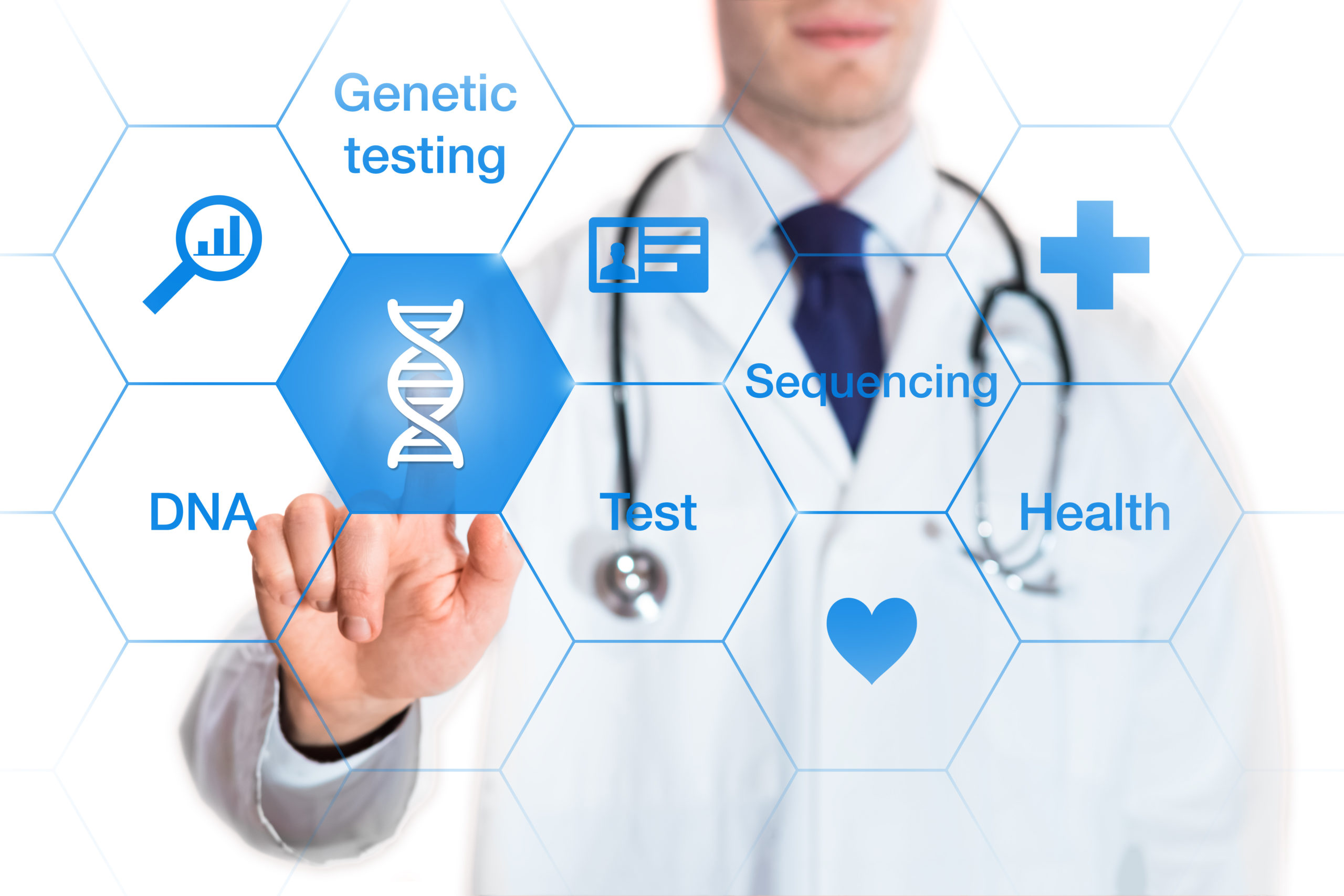Genetic Testing Employee Benefits

Genetic testing is one of the most exciting employee benefits that has everyone talking — and for good reason. Over the past several years, forward-thinking employers have implemented voluntary genetic screening programs for employees, as a benefit of their employment. This has allowed organizations to:
- Help employees improve their health
- Control rising healthcare costs
- Up their benefits game in a fiercely competitive talent market
Many of these DNA testing programs focus on providing people insight into their risks for diseases that are linked to gene mutations, such as certain types of cancer. While this can be extremely useful in situations where preventative care is key, many people do not want to carry the weight of knowing which diseases they may be afflicted by later in life.
Genetic testing is most useful when centered around identifying the personalized risks of something everyone will need to do in their lifetime: take a prescription medication.
People are often surprised to learn that their unique DNA affects their response to 150+ commonly prescribed medications. Decades of research in the field of pharmacogenomics (PGx) show that DNA controls the speed at which certain medications move through your body. If a medication moves too quickly through your system, it can pass out of your body before it ever has a chance to work. If a medication is blocked or processed too slowly, it’s less likely to have its intended therapeutic effect. Worse, it can build up in your body, cause unpleasant side effects, and even put you at risk of an overdose.
So how exactly does genetic testing benefit your employees?
1. Make Better Healthcare Choices
If you’re taking a medication that is ineffective or harmful for you, wouldn’t you want to know? Groundbreaking healthcare innovation like Coriell Life Sciences’ medication management program for employees is making it easier than ever for employers (as well as other payers) to empower their staff — and their doctors — with this personalized insight.
Our Corigen® Medication Safety Program begins with providing employees a free, at-home DNA test that requires a small saliva sample. Once the DNA is analyzed at the lab, a specially trained pharmacist consults with each employee to review any medications that may be unsafe or ineffective for them. The pharmacist also provides recommendations for medication alternatives that are better suited for each individual and shares this information with the individual’s healthcare provider.
This genetic testing benefits employees by providing the knowledge of which medications to avoid as well as which medications are safest and most effective for them. This program also enables employees and their doctors to:
- Avoid trial-and-error prescribing
- Minimize adverse drug reactions
- Get their medications right the first time
Genetic screening for employees is the crux of precision medicine and the future of healthcare.
2. Fewer Doctor Visits, Hospital Stays, and Copays
According to the U.S. Department of Health and Human ServicesU.S. Department of Health and Human Services, adverse drug events in outpatient settings annually account for:
- 3.5 million physician office visits
- 1 million ER visits
- 125,000 hospital admissions
However, about half of all adverse drug events are preventable. Research shows that being on the right medications, thanks to genetic testing, can help measurably reduce how often people go to the hospital, visit the Emergency Department, and need to see their doctors — saving time, resources, and money from unnecessary copays.
3. Supports Employee Mental Health
DNA testing is a powerful tool that can help employees and employers as they continue to prioritize mental health and as prescription drug use for treating mental health conditions continues to rise. There are approximately 60 FDA-approved medications to treat mental health conditions (that’s more than any other category except oncology), making it particularly difficult for even the most seasoned physicians to match patients with the most appropriate medication regimens.
Additionally, it typically takes six to eight weeks to determine if a newly prescribed mental health medication is truly effective for someone. Multiply that by several rounds to get the drug and dosage just right, and the process only gets more painful and costly. DNA testing takes the guesswork out of this equation and helps employees fast-forward to better mental health.
In addition to these genetic testing employee benefits, the program also offers a host of bottom-line benefits for employers.
Interested in learning more? Get a risk-free PGx ROI analysis for your organization today.